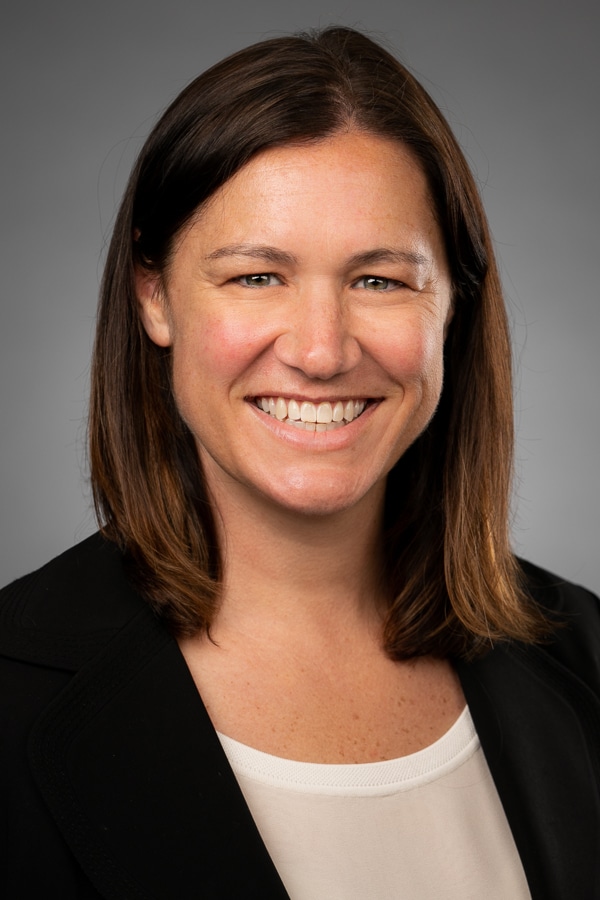All 50 states govern lawyer advertising through their Rules of Professional Conduct, often known as “ethics rules.” The rules in each state are unique to that state. Therefore, it is imperative that lawyers familiarize themselves with the rules of the states that govern their conduct.
Rule 7.1 – Communications Concerning a Lawyer’s Services
(a) Definitions. For the purpose of this Rule 7.1, the following terms shall have the following meanings:
(1) “communication” means any message or offer made by or on behalf of a lawyer concerning the availability of the lawyer for professional employment which is directed to any former, present, or prospective client, including, but not limited to, the following:
(i) any use of firm name, trade name, fictitious name, or other professional designation of such lawyer;
(ii) any stationery, letterhead, business card, sign, brochure, or other comparable written material describing such lawyer;
(iii) any advertisement, regardless of medium, of such lawyer, directed to the general public or any significant portion thereof; or
(iv) any unsolicited correspondence from a lawyer directed to any person or entity; and
(2) “lawyer” means an individual lawyer and any association of lawyers for the practice of law, including a partnership, a professional corporation, limited liability company or any other association.
(b) Purpose of Communications. All communications shall be predominantly informational. As used in this Rule 7.1, “predominantly informational” means that, in both quantity and quality, the communication of factual information rationally related to the need for and selection of a lawyer predominates and that the communication includes only a minimal amount of content designed to attract attention to and create interest in the communication.
(c) False or Misleading Communications. A lawyer shall not make a false or misleading communication about the lawyer or the lawyer’s services. A communication is false or misleading if it:
(1) contains a material misrepresentation of fact or law, or omits a fact necessary to make the communication considered as a whole not materially misleading;
(2) contains a prediction, warranty or guarantee regarding the future success of representation by the lawyer or is likely to create an unjustified expectation about results the lawyer can achieve;
(3) contains an opinion, representation, implication or self-laudatory statement regarding the quality of the lawyer’s legal services which is not susceptible of reasonable verification by the public;
(4) contains information based on the lawyer’s past success without a disclaimer that past success cannot be an assurance of future success because each case must be decided on its own merits;
(5) compares the lawyer’s services with other lawyers’ services, unless the comparison can be factually substantiated;
(6) states or implies that the lawyer actually represents clients in a particular area of practice when the lawyer refers a significant number of such clients to other lawyers for representation with respect to all or a significant aspect of the particular practice area;
(7) states or implies that the lawyer is experienced in a particular area of practice unless significant experience in such practice area can be factually substantiated;
(8) states or implies that the lawyer is in a position to improperly influence any court or other public body or office;
(9) states or implies the existence of a relationship between the lawyer and a government agency or instrumentality;
(10) states or implies that a lawyer has a relationship to any other lawyer unless such relationship in fact exists and is close, personal, continuous and regular;
(11) fails to contain the name and address by city or town of the lawyer whose services are described in the communication;
(12) contains a testimonial about or endorsement of the lawyer, unless the lawyer can factually substantiate the claims made in the testimonial or endorsement and unless such communication also contains an express disclaimer substantively similar to the following: “This testimonial or endorsement does not constitute a guaranty, warranty, or prediction regarding the outcome of your legal matter”;
(13) contains a testimonial or endorsement about the lawyer for which the lawyer has directly or indirectly given or exchanged anything of value to or with the person making the testimonial or giving the endorsement, unless the communication conspicuously discloses that the lawyer has given or exchanged something of value to or with the person making the testimonial or giving the endorsement;
(14) contains a testimonial or endorsement which is not made by an actual client of the lawyer, unless that fact is conspicuously disclosed in the communication;
(15) contains any impersonation, dramatization, or simulation which is not predominantly informational and without conspicuously disclosing in the communication the fact that it is an impersonation, dramatization, or simulation;
(16) fails to contain disclaimers or disclosures required by this Rule 7.1 or the other Rules of Professional Conduct;
(17) contains any other material statement or claim that cannot be factually substantiated.
(d) Lawyers Responsible for Communication. Every lawyer associated in the practice of law with or employed by the lawyer which causes or makes a communication in violation of this rule may be subject to discipline for the failure of the communication to comply with the requirements of this rule.
Rule 7.2 – Advertising
(a) Definition. “Lawyer” is defined in Rule 7.1(a)(2).
(b) Permitted Advertising. Subject to the requirements of Rules 7.1 and 7.3, 7.4 and 7.5, a lawyer may advertise legal services through written, recorded, internet, computer, e-mail or other electronic communication, including public media, such as a telephone directory, legal directory, newspapers or other periodicals, billboards and other signs, radio, television and other electronic media, and recorded messages the public may access by dialing a telephone number, or through other written or recorded communication. This rule shall not apply to any advertisement which is broadcast or disseminated in another jurisdiction in which the advertising lawyer is admitted if such advertisement complies with the rules governing lawyer advertising in that jurisdiction and is reasonably expected by the lawyer not to be received or disseminated in the State of South Dakota.
(c) Record of Advertising. A copy or recording of an advertisement shall be kept by the advertising lawyer for two years after its last dissemination along with a record of when and where it was used.
(d) Prohibited Payments. Except as provided in Rule 1.17 and except as provided in subparagraph (c)(13) of Rule 7.1, a lawyer shall not give anything of value to a person for recommending the lawyer’s services, except that a lawyer may:
(1) Pay the reasonable costs of advertisements or communications permitted by this Rule and for-profit legal service organization;
(2) Pay the usual charges of a not-for-profit 501(c)(3) or 501(c)(6) qualified lawyer referral service. A qualified lawyer referral service is a lawyer referral service that has been approved by an appropriate regulatory authority;
(3) Pay for a law practice in accordance with Rule 1.17; and
(4) Refer clients to another lawyer or a nonlawyer professional pursuant to an agreement not otherwise prohibited under these Rules that provides for the other person to refer clients or customers to the lawyer, if
(i) The reciprocal referral agreement is not exclusive, and
(ii) The client is informed of the existence and nature of the agreement.
Any communication made pursuant to this rule shall include the name and office address of at least one lawyer or law firm responsible for its content.
(e) Prohibited Cost Sharing. No lawyer shall, directly or indirectly, pay all or part of the cost of an advertisement by another lawyer with whom the nonadvertising lawyer is not associated in a partnership, professional corporation or limited liability company for the practice of law, unless the advertisement conspicuously discloses the name and address of the nonadvertising lawyer, and conspicuously discloses whether the advertising lawyer contemplates referring all or any part of the representation of a client obtained through the advertisement to the nonadvertising lawyer.
(f) Permissible Content. The following information in advertisements and written communications shall be presumed not to violate the provisions of this Rule 7.2:
(1) Subject to the requirements of Rule 7.5, the name of the lawyer, a listing of lawyers associated with the lawyer for the practice of law, office addresses and telephone numbers, office and telephone service hours, and a designation such as “lawyer,” “attorney,” “law firm,” “partnership” or “professional corporation,” or “limited liability company.”
(2) Date of admission to the South Dakota bar and any other bar association and a listing of federal courts and jurisdictions where the lawyer is licensed to practice.
(3) Technical and professional licenses granted by the State of South Dakota or other recognized licensing authorities.
(4) Foreign language ability.
(5) Fields of law in which the lawyer is certified subject to the requirements of Rule 7.4.
(6) Prepaid or group legal service plans in which the lawyer participates.
(7) Acceptance of credit cards.
(8) Information concerning fees and costs, or the availability of such information on request, subject to the requirements of this Rule 7.2 and the other Rules of Professional Conduct.
(9) A listing of the name and geographic location of a lawyer as a sponsor of a public service announcement or charitable, civic or community program or event. Such listings shall not exceed the traditional description of sponsors of or contributors to the charitable, civic or community program or event or public service announcement, and such listing must comply with the provisions of this rule and the other Rules of Professional Conduct.
(10) Schools attended, with dates of graduation, degree and other scholastic distinctions.
(11) Public or quasi-public offices.
(12) Military service.
(13) Legal authorships.
(14) Legal teaching positions.
(15) Memberships, offices and committee assignments in bar associations.
(16) Memberships and offices in legal fraternities and legal societies.
(17) Memberships in scientific, technical and professional associations and societies.
(18) Names and addresses of bank references.
(19) With their written consent, names of clients regularly represented.
(20) Office and telephone answering service hours.
(g) Permissible Fee Information.
(1) Advertisements permitted under this Rule 7.2 may contain information about fees for services as follows:
(i) The fee charged for an initial consultation;
(ii) Availability upon request of a written schedule of fees or an estimate of fees to be charged for specific legal services;
(iii) That the charging of a fee is contingent on outcome or that the fee will be a percentage of the recovery, provided that the advertisement conspicuously discloses whether percentages are computed before or after deduction of costs, and only if it specifically and conspicuously states that the client will bear the expenses incurred in the client’s representation, regardless of outcome, except as permitted by Rule 1.8(e);
(iv) The range of fees for services, provided that the advertisement conspicuously discloses that the specific fee within the range which will be charged will vary depending upon the particular matter to be handled for each client, that the quoted fee will be available only to clients whose legal representation is within the services described in the advertisement, and the client is entitled without obligation to an estimate of the fee within the range likely to be charged;
(v) The hourly rate, provided that the advertisement conspicuously discloses that the total fee charge will depend upon the number of hours which must be devoted to the particular matter to be handled for each client, and that the client is entitled without obligation to an estimate of the fee likely to be charged;
(vi) Fixed fees for specific legal services, provided that the advertisement conspicuously discloses that the quoted fee will be available only to a client seeking the specific services described.
(2) A lawyer who advertises a specific fee, range of fees or hourly rate for a particular service shall honor the advertised fee or rate for at least ninety (90) days unless the advertisement conspicuously specifies a shorter period; provided, for advertisements in the yellow pages of telephone directories or other media not published more frequently than annually, the advertised fee or range of fees shall be honored for no less than one year following publication.
(h) Electronic Media. Advertisements by electronic media, such as television and radio, may contain the same information as permitted in advertisements by print media, subject to the following requirements:
(1) If a lawyer advertises by electronic media and a person appears in the advertisement purporting to be a lawyer, such person shall in fact be the advertising lawyer or a lawyer employed full-time by the advertising lawyer; and
(2) If a lawyer advertises a particular legal service by electronic media, and a person appears in the advertisement purporting to be or implying that the person is the lawyer who will render the legal service, the person appearing in the advertisement shall be the lawyer who will actually perform the legal service advertised unless the advertisement conspicuously discloses that the person appearing in the advertisement is not the person who will perform the legal service advertised.
(3) Advertisements disseminated by electronic media shall be prerecorded and the prerecorded communication shall be reviewed and approved by the lawyer before it is broadcast.
(i) Law Directories. Nothing in this Rule 7.2 prohibits a lawyer from permitting the inclusion in reputable directories intended primarily for the use of the legal profession or institutional consumers of legal services and contains such information as has traditionally been included in such publications.
(j) Acceptance of Employment. A lawyer shall not accept employment when he knows or should know that the person who seeks his services does so as a result of conduct prohibited under this Rule 7.2.
(k) Lawyers Responsible for Advertising. Every lawyer associated in the practice of law with or employed by the lawyer which causes or makes an advertising in violation of this rule may be subject to discipline for the failure of the advertisement to comply with the requirements of this rule.
(l) Mandatory Disclosure. Every lawyer shall, in any written or media advertisements, disclose the absence of professional liability insurance if the lawyer does not have professional liability insurance having limits of at least $100,000, using the specific language required in Rule 1.4(c)(1) or (2).
Rule 7.3 – Solicitation of Clients
(a) A lawyer shall not by in-person, live telephone or real-time electronic contact solicit professional employment when a significant motive for the lawyer’s doing so is the lawyer’s pecuniary gain, unless the person contacted:
(1) Is a lawyer; or
(2) Has a family, close personal, or prior professional relationship with the lawyer.
(b) A lawyer shall not solicit professional employment by written, recorded or electronic communication or by in-person, live telephone or real-time electronic contact even when not otherwise prohibited by paragraph (a), if:
(1) The target of the solicitation has made known to the lawyer a desire not to be solicited by the lawyer; or
(2) The solicitation involves coercion, duress, or harassment.
(c) A copy of every written or recorded communication from a lawyer soliciting professional employment from anyone shall be deposited no less than thirty days prior to its dissemination or publication with the Secretary-Treasurer of the South Dakota State Bar by mailing the same to the Office of the State Bar of South Dakota in Pierre, postage prepaid, return receipt requested.
(d) Every written, recorded or electronic communication from a lawyer soliciting professional employment from a prospective client known to be in need of legal services in a particular matter shall include the words “Advertising Material” on the outside envelope, if any, and at the beginning and ending of any recorded or electronic communication, unless the recipient of the communication is a person specified in paragraphs (a)(1) or (a)(2). Where the communication is written, the label shall appear in a minimum 18-point type or in type as large as the largest type otherwise used in the written communication, whichever is larger. This labeling requirement shall not apply to mailings of announcements of changes in address, firm structure or personnel, nor to mailings of firm brochures to persons selected on a basis other than prospective employment.
(e) Notwithstanding the prohibitions in paragraph (a), a lawyer may participate with a prepaid or group legal service plan operated by an organization not owned or directed by the lawyer that uses in-person or telephone contact to solicit memberships or subscriptions for the plan from persons who are not known to need legal services in a particular matter covered by the plan.
Rule 7.4 – Communication of Fields of Practice and Specialization
A lawyer may communicate the fact that the lawyer does or does not practice in particular fields of law. If a lawyer practices only in certain fields, or will not accept matters except in such fields, the lawyer is permitted so to indicate. A lawyer shall not state or imply that the lawyer is a specialist except as follows:
(a) A lawyer admitted to engage in patent practice before the United States Patent and Trademark Office may use the designation “patent attorney” or a substantially similar designation.
(b) A lawyer engaged in admiralty practice may use the designation “admiralty”, “proctor in admiralty” or a substantially similar designation.
(c) If a lawyer or firm practices in only certain fields and desires to advertise such limitations in the yellow pages of the telephone directory any such advertising must be accompanied by the following disclaimer appearing in a prominent and conspicuous manner in such advertising or on the same page as the advertising:
(1) Such certification is granted by an organization which has been approved by the appropriate regulatory authority to grant such certification; or
(2) Such certification is granted by an organization that has not yet been approved by, or has been denied the approval available from the appropriate regulatory authority, and the absence or denial of approval is clearly stated in the communication, and in any advertising subject to Rule 7.2, such statement appears in the same sentence that communicates the certification.
(d) Pursuant to subsection (c)(1), the South Dakota Supreme Court hereby designates the American Bar Association as the appropriate regulatory authority to accredit specialty certification programs according to such standards and criteria as the American Bar Association may from time to time establish for accreditation of specialty programs.
(e) A lawyer shall not state or imply that a lawyer is certified as a specialist in a particular field of law, unless:
(1) the lawyer has been certified as a specialist by an organization that has been approved by an appropriate state authority or that has been accredited by the American Bar Association; and
(2) the name of the certifying organization is clearly identified in the communication.
Rule 7.5 – Firm Names and Letterheads
(a) A lawyer shall not use a firm name, letterhead or other professional designation that violates Rule 7.1. A trade name may be used by a lawyer in private practice if it does not imply a connection with a government agency or with a public or charitable legal services organization and is not otherwise in violation of Rule 7.1.
(b) A law firm with offices in more than one jurisdiction may use the same name or other professional designation in each jurisdiction, but identification of the lawyers in an office of the firm shall indicate the jurisdictional limitations on those not licensed to practice in the jurisdiction where the office is located.
(c) The name of a lawyer holding a public office shall not be used in the name of a law firm, or in communications on its behalf, during any substantial period in which the lawyer is not actively and regularly practicing with the firm.
(d) Lawyers may state or imply that they practice in a partnership or other organization only when that is the fact.
(e) The disclosure required in Rule 1.4(c)(1) or (2) shall be in black ink with type no smaller than the type used for showing the individual lawyer’s names.
Rule 1.6 – Confidentiality of Information
(a) A lawyer shall not reveal information relating to the representation of a client unless the client gives informed consent, the disclosure is impliedly authorized in order to carry out the representation, or the disclosure is permitted by paragraph (b).
(b) A lawyer may reveal information relating to the representation of a client to the extent the lawyer reasonably believes necessary:
(1) To prevent the client from committing a criminal act that the lawyer believes is likely to result in imminent death or substantial bodily harm;
(2) To secure legal advice about the lawyer’s compliance with these Rules;
(3) To establish a claim or defense on behalf of the lawyer in a controversy between the lawyer and the client, to establish a defense to a criminal charge or civil claim against the lawyer based upon conduct in which the client was involved, or to respond to allegations in any proceeding concerning the lawyer’s representation of the client;
(4) To the extent that revelation appears to be necessary to rectify the consequences of a client’s criminal or fraudulent act in which the lawyer’s services had been used;
(5) To comply with other law or a court order; or
(6) To detect and resolve conflicts of interest arising from the lawyer’s change of employment or from changes in the composition or ownership of a firm, but only if the revealed information would not compromise the attorney-client privilege or otherwise prejudice the client.
(c) A lawyer shall make reasonable efforts to prevent the inadvertent or unauthorized disclosure of, or unauthorized access to, information relating to the representation of a client.
*This information is provided as a convenience to the viewers of this material. Viewers should conduct their own research or rely on the advice of a lawyer before relying on the information here.






